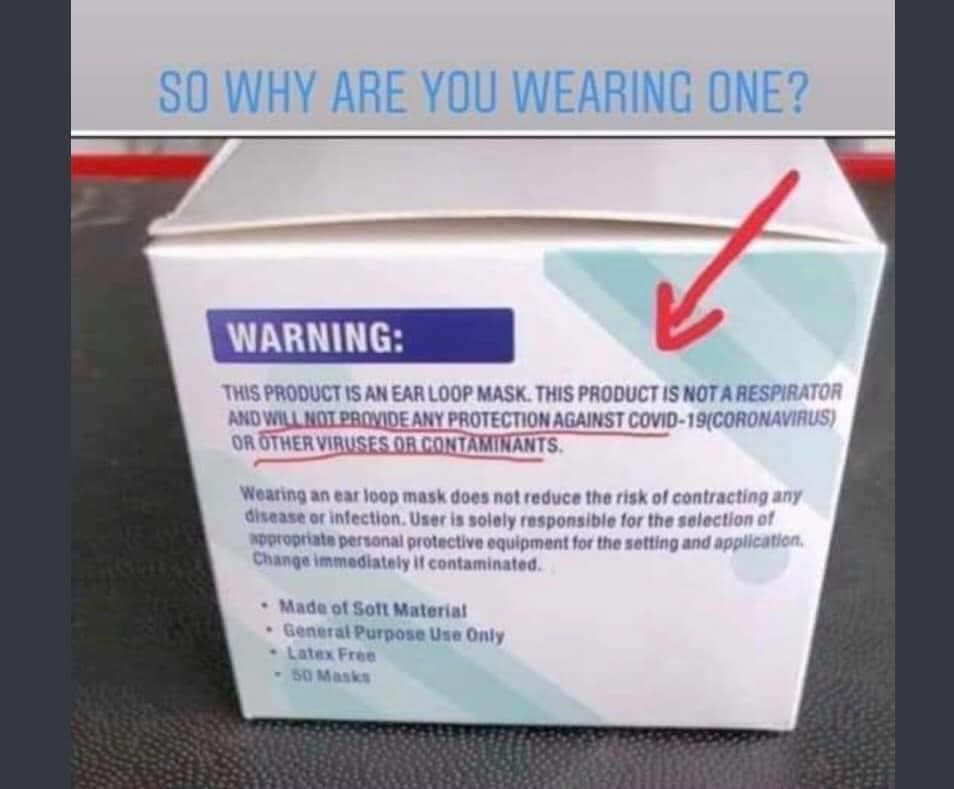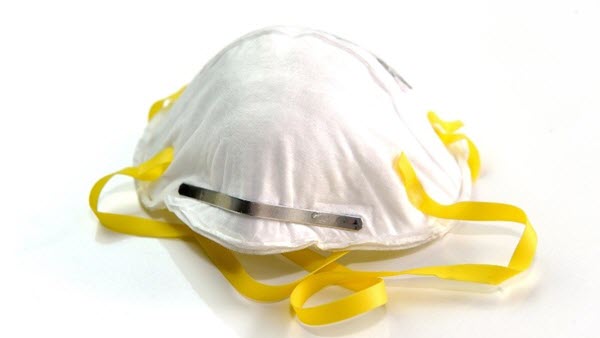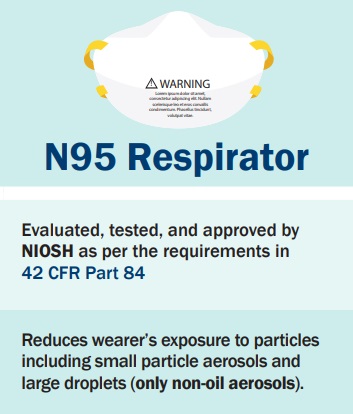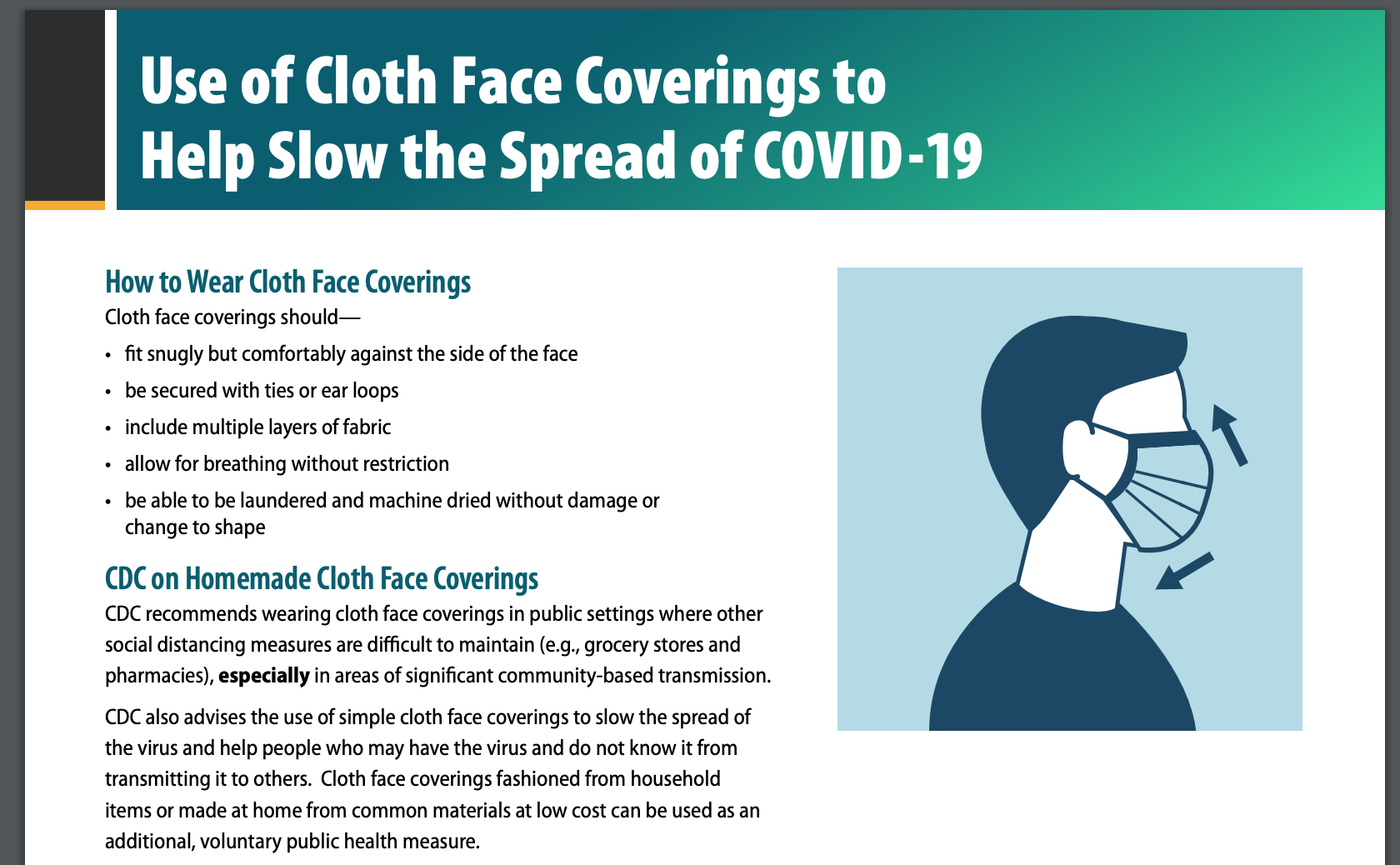During the COVID-19 coronavirus disease pandemic in 2020, as Americans were being increasingly required to wear face masks in order to patronize businesses such as grocery stores, some social media users began circulating images questioning the efficacy of wearing those masks, such as the following:

This photograph (and others like it) reflects accurate disclaimers on the packaging of face masks that caution users, "THIS PRODUCT IS NOT A RESPIRATOR AND WILL NOT PROVIDE ANY PROTECTION AGAINST COVID-19 (CORONAVIRUS) OR OTHER VIRUSES OR CONTAMINANTS." Such disclaimers do not mean that wearing masks is ineffective at limiting the spread of COVID-19, however, but rather that viewers are misunderstanding the function and purpose of different types of face masks.
The type of mask known as a N95 respirator is, in the words of the Food & Drug Administration (FDA), "a respiratory protective device designed to achieve a very close facial fit and very efficient filtration of airborne particles":

The primary purpose of N95 respirator masks is to protect the wearer from airborne particles (including small aerosol particles), such as those that might cause disease. That is why such masks are worn by health care personnel who are treating patients in a medical setting, to help prevent those personnel from contracting illnesses their patients might spread to them. These masks also, of course, provide some measure of protection for the patients as well:

On the other hand, the primary purpose of (cloth) ear loop masks (like the type represented by the picture of packaging seen above) is to protect other people by blocking large-particle droplets, splashes, sprays, or splatter containing infectious agents that the (infected) wearer might release through coughing, sneezing, talking, and the like. (Although, again, they do provide some small measure of protection to the wearer, but not at nearly as high a level as a respirator mask would.)

A Wirecutter article and video explained the difference in these two types of masks:
Surgical masks do not protect against viruses. At best, these cloth or latex barriers may help prevent the spread of germs (via coughs or sneezes) when worn by folks who are ill. A properly fitted N95 respirator mask, on the other hand, is far more likely to protect against a virus, as it can filter particulates as small as 0.3 micron. An N95 mask can filter properly only when it has created an airtight seal around your mouth and nose. Health-care workers who may be exposed to pathogens, for example, are required to go through annual N95 fit testing to ensure they are wearing the masks correctly. If you have N95 masks at home and you’d prefer to wear one in public, doing so won’t hurt.
https://youtu.be/ZjqFZrEjdOw
The Centers for Disease Control and Prevention (CDC) recommends that members of the public use simple cloth face coverings when in a public setting to slow the spread of the virus, since this will help people who may have the virus and do not know it from transmitting it to others. In short, you shouldn't count on ear loop masks to protect you from COVID-19 -- you should wear them mainly as a public service to help protect others from you.

